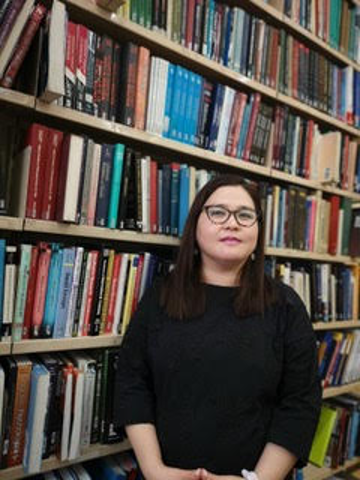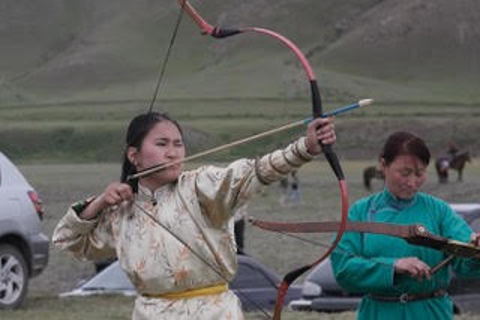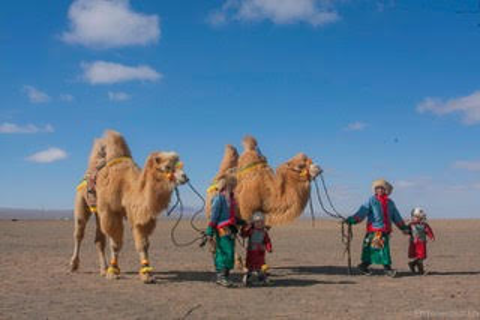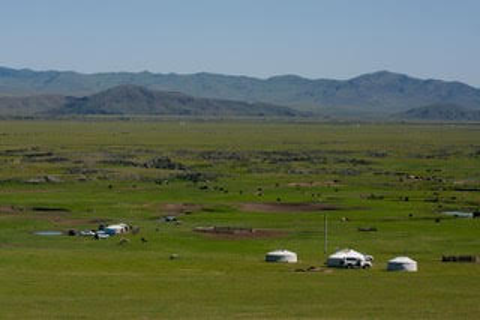Photography by Erdenemunkh Richinnyam
In April 2019 I had a brief but unforgettable visit to Mongolia. I was stunned by the beauty of the country, the wilderness, the vast empty space and the straightforward friendliness of every person I’ve met.

Speaking with people- shepherds, taxi drivers, US educated lawyers and two British school teachers I have learned that psychology hardly existed in the country, nor was it missed… Were the simplicity and harshness of existence a protection against interpersonal harm and emotional scars? Unlikely, I thought; but my visit was too short for finding answers.
I then learned that the ISSTD had just gained its first Mongolian member: Khongorzul (Zola) Amarsanaa, and I was eager to meet her and learn more.
We met last week, over Zoom. Zola is now in Budapest, completing her PhD on survival experiences of Mongolian survivors of intimate partner violence and a comparative study of post-traumatic growth of Hungarian and Mongolian survivors. She is a qualified psychologist and holds an MSc in Social Research Methods (Sussex University, UK), and a counselling MA (Monash University, Australia). She is also a co-founder and chairperson of Beautiful Hearts Against Sexual Violence– an award-winning NGO that has already reached out over 75, 000 school children in Mongolia.

I asked her about her professional journey, what drew her to the field and motivated her training and work.
Zola explained that violence against women is wide spread in Mongolia, but rarely spoken about. UN figures found that one in two children had suffered some form of domestic violence; one in three women experience domestic violence in their lifetime; and only one in ten children believed it was unacceptable. The proportions of the problem are far more severe in rural Mongolia, where the isolation of families, harsh living conditions, and lack of services makes women even more dependent and vulnerable.

“I come from a privileged family, and from a lineage of strong, independent and academic women,” Zola says with a smile. “I knew about these problems- everybody does; but I also had opportunities for education and action”.
Zola had more than just opportunities- she clearly had the determination, courage, capability and commitment. Starting as an intern at the National Centre Against Violence, a domestic-violence counsellor, and later coordinator for the Centre for Human Rights and Development in Mongolia, she also runs a community-based development programme to empower local communities in asserting their rights.

In 2012 she co-founded Beautiful Hearts Against Sexual Violence. Beautiful Hearts Against Sexual Violence is a member-based non-government organization based in Ulaanbaatar, Mongolia. “It started with just me and three friends”, she remembers. “Then each of us brought our friends to help. It was a group that we could trust, because we were friends; and it included teachers, social workers, parents, university lecturers, engineers, psychologists- people who could help raise awareness about the danger of gender-based violence, shape policies and provide psychosocial services to survivors”. Psychotherapeutically, the organization focuses on various forms of trauma informed art therapy. Politically, it raises awareness and speaks of that which was hidden. And it keeps growing.

For more information about Beautiful Hearts check out their Facebook page. Currently their website is under construction, but it will be available here. If it is not available at the time you check it out, keep checking in – it will soon be operational. In addition, the link for social media (Instagram, twitter, youtube) is /btifulhearts
I asked Zola what lead her to join ISSTD and she replied, “I hope to learn from psychologists and therapists about new treatment approaches to trauma and dissociation and having a collective care among all mental health practitioners especially during this hard time (covid19). I want to learn from others’ experiences, especially since the ISSTD is a culturally diverse community and seems to be very interesting.”
Welcome to the ISSTD, Zola, we are delighted to have you. I hope you find it supportive of all that you do, and that you’ll enjoy meeting like-minded colleagues!

